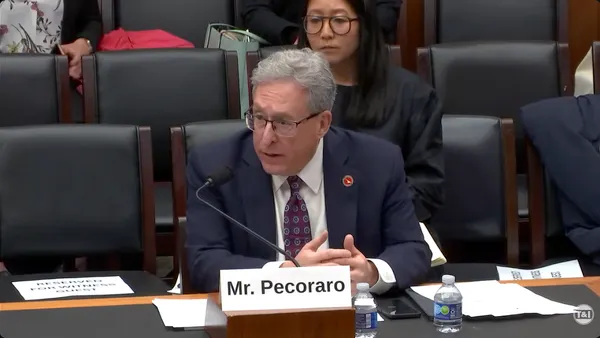Dive Brief:
- A judge has rejected Lime’s request for a temporary restraining order blocking San Francisco from allowing electric scooters on the street, which Lime filed after missing out on a desired permit that would have allowed it to be part of the initial launch.
- In August, San Francisco Municipal Transit Agency (SFMTA) selected Skip and Scoot for its one-year scooter pilot, prompting complaints from Lime that the process "lacked transparency from the beginning," in the words of CEO Toby Sun. The company filed several appeals, and filed its emergency request to halt the pilot last week, saying the courts were the company’s only remaining option. Skip and Scoot fleets were released on the streets yesterday.
- TechCrunch reports that Lime’s emergency bid was rejected, but the judge will allow a lawsuit over the fairness of the city’s selection process to move forward and has ordered SFMTA officials to testify.
Dive Insight:
Lime spokesman Jack Song said the judge’s decision was still a win for the company, saying in a statement to TechCrunch the case was "not about preventing other operators from going forward; it was about exposing the biased and flawed process of the SFMTA." Allowing the suit to move forward, Song said, would "ensure that the people of San Francisco receive a transparent, fair and equitable process that best serves the entire City and County."
San Francisco designed its scooter pilot to be rolled out with a limited number of companies and vehicles, allowing the city to test safety and the role of regulations. It also came after the city had to file a cease and desist action against Lime, Bird and Spin when those companies dropped more than 1,000 combined scooters on sidewalks without permission. Those three companies also scored poorly in SFMTA’s proposal assessments, which included categories on safety, access for disabled users, equitable access, community outreach and sustainability.
It remains to be seen whether the further testimony will unearth any untoward action during SFMTA’s evaluation. John Cote, communications director for the city attorney, told TechCrunch the program "has been both fair and transparent. Lime just didn’t like the outcome."
As cities continue to negotiate their relationship with dockless companies after some initial friction, the outcome of Lime’s legal action could offer a lot of insight into what cities — and companies — are looking for. The testimony will bring into light why San Francisco chose their two pilot companies, and what made the reject Lime’s proposal. No doubt other companies will be watching closely to see what they can do to bolster other public bids for service.










